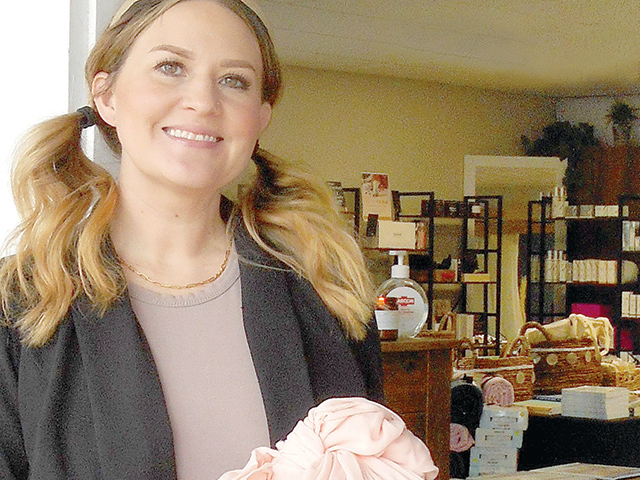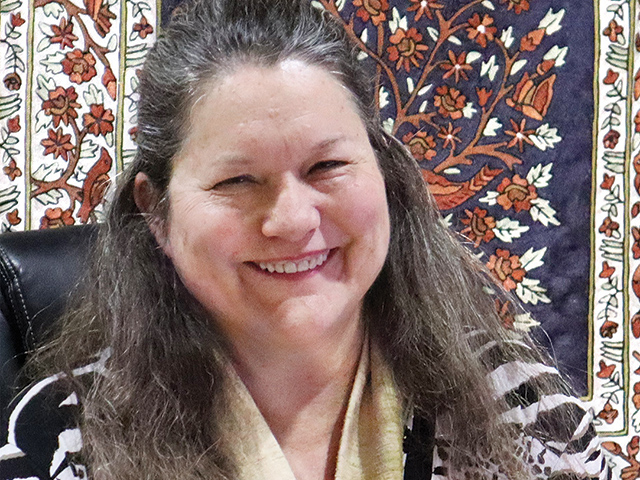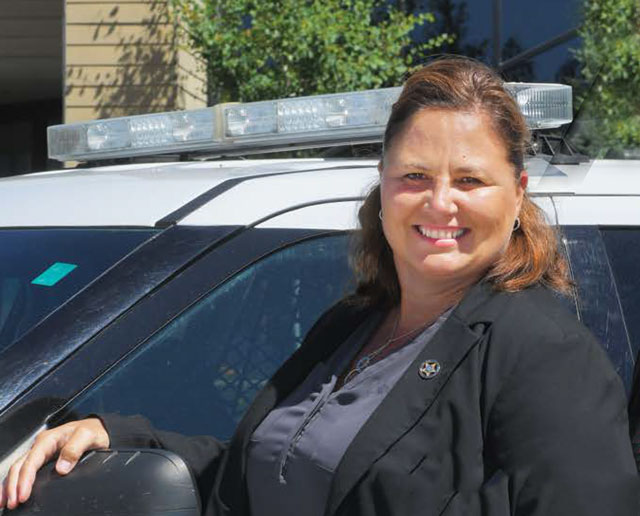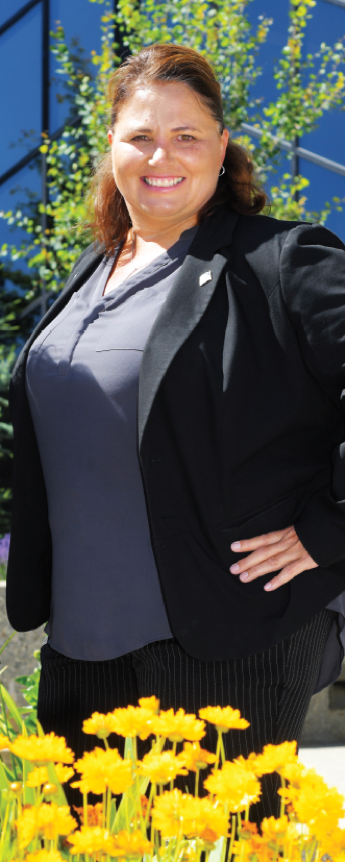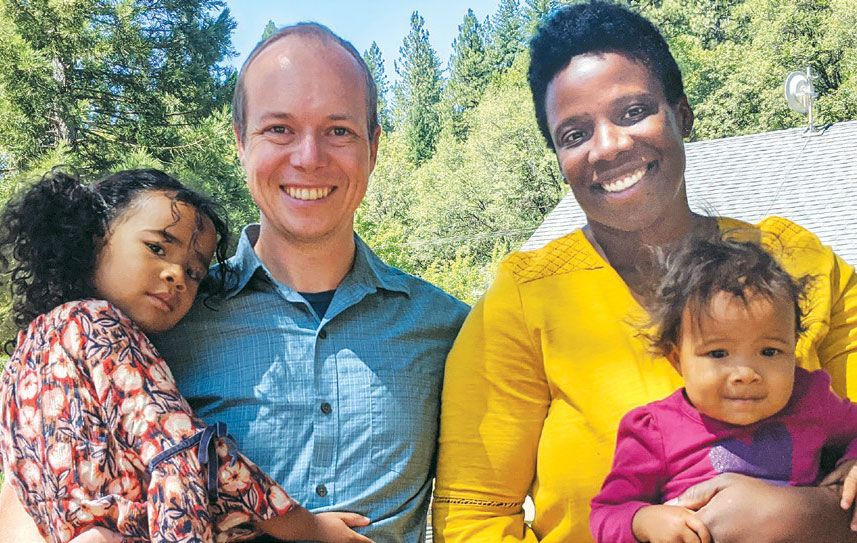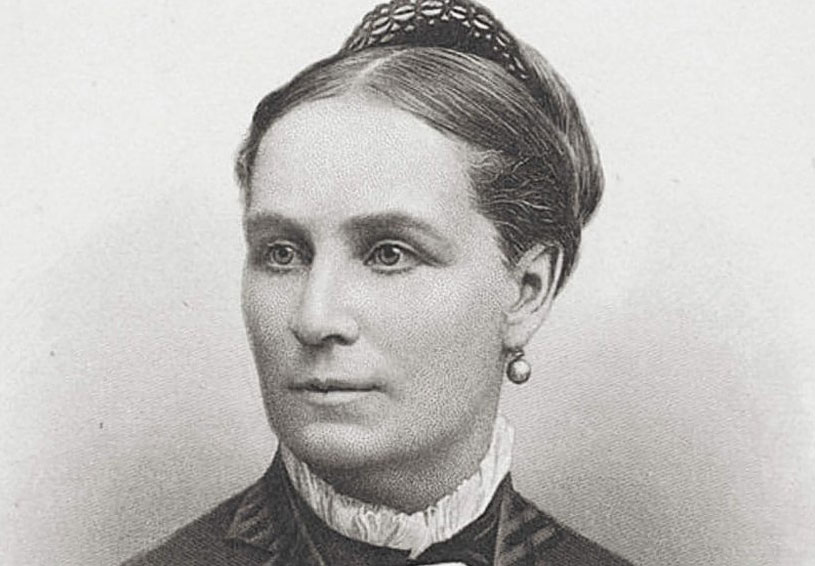By Judith Hurley Prosser
Local Couple Played Key Role In 19th Amendment History
Nevada City resident Ellen Clark Sargent never got to vote in a national election. But she helped shape the very first legislation calling for a constitutional amendment that would give women the franchise. Her life-long fight for the vote and her work with leaders of the suffragist movement helped push through the 19th Amendment to the United States Constitution.
It took nearly five decades. And, it all started with a train ride.
Blame Snow on the Tracks
In late December of 1871, women’s suffrage campaigner Susan B. Anthony got onto the Union Pacific Railroad train in Ogden, Utah, headed for Washington, D.C. The train was packed to capacity, but she was able to share a semi-private compartment with Ellen Clark Sargent and her husband, Aaron Sargent, then a U.S. representative from California. They made Anthony feel welcome, sharing the food and tea they had brought with them. Ellen knew of Anthony’s work, and Aaron, too, supported women’s right to vote.
Ellen Sargent already had been working for women’s rights. In 1869, she had founded the first women’s suffrage group in Nevada City. It was the same year that Anthony and Elizabeth Cady Stanton had established the National Woman Suffrage Association in New York. Members of the Nevada City group met in the Library Hall of the Brown & Morgan Building, at Broad and Pine streets. They paid 50 cents to join and a fee of 25 cents a month – a significant sum at that time, especially for women. Throughout her life, Ellen Sargent presided over similar organizations and at conventions that gathered women and encouraged them to continue fighting for the vote.
The Sargents had been living and raising a family in Nevada City for many years. Aaron Sargent had come to California with the Gold Rush and arrived in Nevada City in 1850. He had built a house at the top of Broad Street before going back East to marry Ellen. Back in Nevada City, Aaron Sargent owned and operated a newspaper, the Nevada Daily Journal, became an attorney and moved into politics. Today, a plaque is posted at the location of the original homestead, in the front garden where it can be seen from the street. By the time the Sargents met Anthony on the train, Aaron Sargent was serving his third term in the U.S. House of Representatives.
What happened next led to a lifelong friendship between Anthony and the Sargents that would change the course of history. Nevada County resident and New York Times best-selling author Chris Enss describes that journey in her book, “No Place For A Woman: The Struggle for Suffrage in the Wild West.”
Anthony kept a daily journal, and her notes covered the next ten days of their trip. It took longer than usual because of heavy snow on the tracks. The conversation between Anthony and the Sargents focused on how to advance the cause of women’s suffrage. They explored ways to unify a split between radicals and conservatives in California. They discussed the influence of other women in the movement, such as Laura de Force Gordon, who helped unite suffrage society members scattered across northern California. They discussed what should be included in everyone’s natural rights. The trio thoroughly reviewed the 14th and 15th Amendments. Anthony and Ellen Sargent argued the wording in those amendments made it clear that women already enjoyed the enfranchise. But Aaron maintained that a new amendment would have to be drafted to secure rights for women. He began working on the text for that amendment on the trip.
Amendment First Introduced in 1878
By the time the Sargents and Anthony parted company in Washington, they had forged a lasting friendship well-documented by the many letters they exchanged over the next 20 years. Anthony would travel throughout the country promoting the suffrage movement. Aaron Sargent would go back and forth from California to the Capitol, and Ellen Clark Sargent would focus her efforts on cultivating the movement in northern California.
In 1872, Aaron Sargent won election to the U.S. Senate. At the urging of Ellen Sargent, Anthony and Stanton — who also had become friends with the Sargents — now- Sen. Sargent introduced the language that eventually would become the 19th Amendment into Congress on Jan. 10, 1878. “The right of citizens to vote shall not be abridged by the United States or any State on account of sex.” The bill was rejected, though it would be re-introduced every year for the next 41 years.
In a letter to Ellen Sargent in 1881, Anthony wrote, “How pleased I am to know that Mr. Sargent will continue to introduce a bill granting women the opportunity to vote…While the Senator is ever and ever so much to us – he without his wife wouldn’t be but the half – would he?”
Gold Rush Roots
Ellen Sargent and Anthony visited and worked together many times during the period the Sargents lived in the nation’s capital, as well as in other periods of their lives. In Enss’ article in Cowgirl magazine (June 6, 2016), she shared a letter Ellen Sargent wrote to Mrs. Alice L. Park, a famous campaigner for women’s rights, in which she recalled her life in Washington. “I have many very pleasant memories of the place and the people I have met there. Mr. Sargent and myself, with our family, lived there twelve years. I learned a great deal while there; dined at the White House many times with distinguished people; visited at the Public Buildings; met Miss (Susan) Anthony, (Elizabeth Cady) Stanton, Isabella Beecher Hooker, all the other great lights of those times: love to think it over and appreciate the privilege more as time goes on.”
After one term in the Senate and a stint in Germany as U.S. ambassador, the Sargents resettled in San Francisco in 1884. On Aug. 14, 1887, Aaron Sargent died at home from complications of an old malarial fever he had contracted during his early days traveling across Panama to California. Throughout his life, he had been a strong proponent for women’s rights and consistently spoke for women’s right to vote while in political office.
Tax Protester
After her husband’s death, Ellen Sargent dedicated herself completely to the suffrage movement. She became the treasurer of the National Woman Suffrage Association and represented California at the women’s convention in Washington in early 1888. She was also one of the speakers at that convention.
As a woman of means, Sargent, then 74, filed suit against the San Francisco County Board of Supervisors for collecting taxes from her, but not giving her the right to vote on anything for which she was paying those taxes. Her son, George Sargent, represented her. She lost the case. Nevertheless, it inspired women in the same circumstances to join the suffrage movement, and the northern California suffrage groups saw a substantial increase in membership.
Sargent continued to work diligently to gain the right to vote in California. She believed that if California gave women the franchise, the more conservative East would follow suit. The California Woman Suffrage Amendment was on the ballot on Nov. 3, 1896. It lost by a vote of 80,000 for to 95,000 against. Sargent did not give up. As honorary president of the California Equal Suffrage Association, she challenged women to educate themselves about how government worked. She urged followers to be informed citizens once the right to vote was granted. The amendment was once again on the ballot for Oct. 13, 1911. This time, it narrowly passed. But Sargent did not see her victory; she had died in July at the age of 85.
California’s passage of women’s right to vote did encourage passage of the 19th Amendment. The model of suffrage leaders working with civic and social clubs to spread the word, as the Sargents had done in California, was effectively implemented throughout the country.
The 19th Amendment finally passed Congress on June 4, 1919, and was ratified on Aug. 18, 1920. American women at last had the right to vote.
A Heroine for our Times
On July 25, 1911, the California Equal Suffrage Association (of which Ellen Clark Sargent had been president 7 times) organized a memorial in Union Square in San Francisco. More than 2,000 suffragists assembled to honor her. It was the first time the City of San Francisco had held a public memorial for a woman, and state flags flew at half-mast. Governor Hiram Johnson had planned to attend, but had to cancel at the last minute. In his stead, prominent San Francisco attorney, Thomas E. Hayden made the opening address, praising Sargent’s life and dedication.
He honored her by using the same quote Ellen herself had used throughout her years as a suffragist leader: “She was one of the wise women who saw years ago that woman could not attain her highest development until she had the same large opportunities and the same large chance as her brothers.”
Ellen Clark Sargent worked her entire adult life for women’s suffrage. Like so many of the suffragists, she herself never got the chance to vote, but her daughters and grandchildren have. Her legacy is the empowerment of women throughout this country.
Special thanks to Chris Enss, Nevada County resident and New York Times bestselling author, for the use of information from her book, “No Place For a Woman: The Struggle for Suffrage in the Wild West.” Her books are available at The Book Seller in downtown Grass Valley and at ChrisEnss.com.


